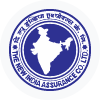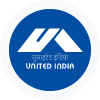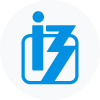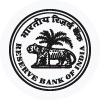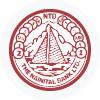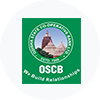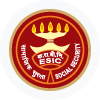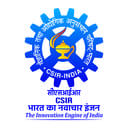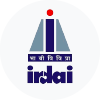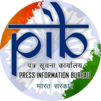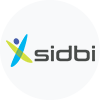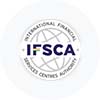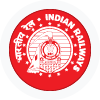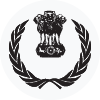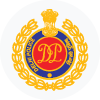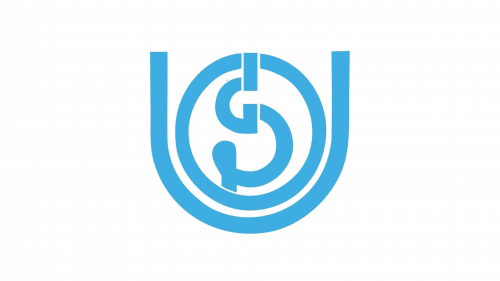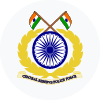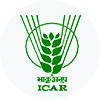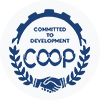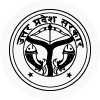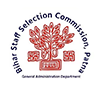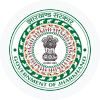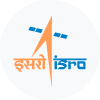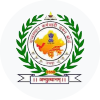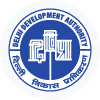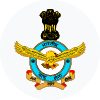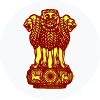SSC JE Mechanical Engineering 2023
The Staff Selection Commission (SSC) will be releasing the official notification for the Junior Engineer (JE) Mechanical examination 2023 on its website and there are 1324 vacancies in the year. The SSC JE exam is conducted to recruit eligible candidates for the posts of Junior Engineers in various departments and organizations under the Government of India. The notification contains all the important details about the exam, such as eligibility criteria, exam pattern, syllabus, selection process, application fee, etc. Candidates who are interested in applying for the SSC JE Mechanical exam can download the notification PDF from the official website (once it is released) and read it carefully before filling the online application form. The online application process will start on 26 July 2023 and will end on August 16, 2023. The SSC JE exam will be held in two stages: Paper-I and Paper II and both are (Computer Based Examination) in the year. The tentative date for Paper-I exam in the month of October 2023 and the tentative date for Paper-II hasn't been released yet. Candidates who qualify in Paper-I will be eligible to appear for Paper-II. The final selection of candidates will be based on their performance in both papers and their preference of posts.
SSC JE Mechanical Engineering Exam Highlights
Staff Selection Commission has released the official Notification PDF on 26 july 2023 for SSC JE Mechanical Engineering in which all information related to SSC JE is given. All the candidates who are preparing for SSC JE 2023 exam must know all the information related to SSC JE Mechanical Engineering Exam.This will enable candidates to prepare well for the SSC JE Exam and end up getting selected.
| Particulars | Details |
| Conducting Body | Staff Selection Commission (SSC) |
| Exam name | SSC Junior Engineer (SSC JE) |
| SSC JE Official Website | ssc.nic.in |
| SSC JE vacancy 2023 | 1324 |
| Department for which vacancies are announced | Civil, Mechanical, Electrical, and Quantity Surveying & Contracts |
| Frequency of Exam | Once a year |
| Level of the exam | National Level |
| SSC JE ME Application mode | Online |
| SSC JE ME Exam mode | Online and Offline |
| SSC JE ME Selection Process | - Paper 1 and Paper 2 (CBT)
- Document Verification
|
| Medium of paper | English and Hindi |
SSC JE Mechanical Engineering 2023 Important Dates
The Staff Selection Commission (SSC) conducts the Junior Engineer (JE) exam every year to recruit eligible candidates for various posts in civil, mechanical, electrical and quantity surveying and contract engineering. The SSC JE exam is conducted in two stages: Paper-I and Paper-II. Candidates are advised to keep checking this space for any updates on the SSC JE exam dates and other details. The important dates for the SSC JE exam 2023 are as follows:
| Events | Dates |
| SSC JE Mechanical Engineering 2023 Notification Release Date | 26 July 2023 |
| SSC JE Mechanical Engineering2023 Application Starts | 26 July 2023 |
| SSC JE Mechanical Engineering Last date and time for receipt of online applications | 16.08.2023 (2300 hours) |
| Date of ‘Window for Application Form Correction' and online payment of Correction Charges | 17.08.2023 to 18.08.2023 (2300 hours) |
| SSC JE ME Tier-I Admit Card 2023 | September 2023 |
| SSC JE Tier 1 Tentative Exam Date 2023 | October 2023 |
| SSC JE Tier-I Result and Cut-Off | -- |
| SSC JE Tier-II Admit Card | -- |
| SSC JE ME Tier-II Exam Date 2023 | -- |
SSC JE Mechanical Engineering Notification 2023
The Staff Selection Commission (SSC) released the SSC JE 2023 Notification PDF on 26 July 2023 on its official website and the total number of vacancies for SSC JE 1324. This is an excellent opportunity for the Diploma students who are looking for a position of Junior Engineer. SSC JE Mechanical Engineering Notification 2023 contains all the necessary information related to the exam including eligibility criteria, syllabus, vacancies and others. It is important to have this Notification PDF to stay updated with the latest information.
SSC JE Mechanical Engineering 2023 Post Details
| S. No. | Organization | Post |
| 1 | Central Water and Power Research Station | Junior Engineer (Mechanical) |
| 2 | Central Water Commission | Junior Engineer (Mechanical) |
| 3 | Directorate of Quality Assurance (Naval) | Junior Engineer (Mechanical) |
| 4 | Farakka Barrage Project (FBP) | Junior Engineer (Mechanical) |
| 5 | Military Engineer Services (MES) | Junior Engineer (Mechanical) |
| 6 | National Technical Research Organization (NTRO) | Junior Engineer (Mechanical) |
| 7 | Ministry of Ports, Shipping & Waterways (Andaman Lakshadweep Harbour Works) | Junior Engineer (Mechanical) |
SSC JE Mechanical Engineering vacancies
The Staff Selection Commission (SSC) released the SSC JE 2023 Notification on 26 July 2023 on its official website. There are a total 1324 vacancies for the post of Junior Engineer. Candidates can apply for the SSC JE Mechanical Engineering Exam and start your Preparation for the Exam.
| SSC JE 2023 vacancies |
| SNo | Name of Organisation | Post | SC | ST | OBC | EWS | UR | Total |
| 1. | Border Road Organisation (Males) | Civil | 65 | 32 | 116 | 43 | 175 | 431 |
| 2. | Border Road Organisation (Males) | Electrical & Mechanical | 08 | 04 | 15 | 06 | 22 | 55 |
| 3. | Central Public Works Department | Civil | 78 | 35 | 82 | 32 | 194 | 421 |
| 4. | Central Public Works Department | Electrical | 15 | 10 | 15 | 10 | 74 | 124 |
| 5. | Central Water Commission | Civil | 24 | 10 | 34 | 21 | 99 | 188 |
| 6. | Central Water Commission | Mechanical | 03 | 01 | 04 | 02 | 13 | 23 |
| 7. | Farakka Barrage Project | Civil | 04 | 01 | 06 | 02 | 02 | 15 |
| 8. | Farakka Barrage Project | Mechanical | -- | -- | 02 | -- | 04 | 06 |
| 9. | Military Engineer Services | Civil | 04 | 02 | 08 | 03 | 12 | 29 |
| 10. | Military Engineer Services | Electrical & Mechanical | 03 | 01 | 05 | 02 | 07 | 18 |
| 11. | Ministry of Ports, Shipping & Waterways (Andaman Lakshadweep Harbour Works) | Civil | -- | -- | -- | -- | 07 | 07 |
| 12. | Ministry of Ports, Shipping & Waterways (Andaman Lakshadweep Harbour Works) | Mechanical | -- | -- | -- | -- | 01 | 01 |
| 13. | National Technical Research Organisation (NTRO) | Civil | 01 | -- | 01 | -- | 02 | 04 |
| 14. | National Technical Research Organisation (NTRO) | Electrical | 01 | -- | -- | -- | -- | -- |
| 15. | National Technical Research Organisation (NTRO) | Mechanical | -- | -- | -- | -- | 01 | 01 |
| Total | 206 | 96 | 288 | 121 | 613 | 1324 |
SSC JE Mechanical Engineering 2023 Eligibility Criteria
The Staff Selection Commission (SSC) conducts the Junior Engineer (JE) exam every year to recruit candidates for various engineering posts in different departments of the central government. The SSC JE eligibility criteria include the following aspects:
SSC JE Mechanical Engineering Age Limit as on (1.08.2023)
| S. No. | Organization | Age limit |
| 1 | Border Roads Organization | Up to 30 years |
| 2 | Central Water and Power Research Station | Up to 30 years |
| 3 | Central Water Commission | Up to 32 years |
| 4 | Directorate of Quality Assurance (Naval) | Up to 30 years |
| 5 | Farakka Barrage Project (FBP) | Up to 30 years |
| 6 | Military Engineer Services (MES) | Up to 30 years |
| 7 | National Technical Research Organization (NTRO) | Up to 30 years |
| 8 | Ministry of Ports, Shipping & Waterways (Andaman Lakshadweep Harbour Works) | Up to 30 years |
SSC JE Mechanical Engineering Age Relaxation
| Category | SSC JE ME Age Relaxation |
| Scheduled Caste / Scheduled Tribe | 5 years |
| Other Backward Classes (OBC) | 3 years |
| Persons with Disabilities (PwD) | 10 years |
| PwD + OBC | 13 years |
| PwD + SC/ ST | 15 years |
| Ex-Servicemen (ESM) | 03 years after deduction of the military service rendered from the actual age |
Defense Personnel disabled in operation during hostilities with any foreign country or in a disturbed area and released as a consequence thereof (SC/ ST). | General/ OBC | 3 Years |
| SC/ ST | 8 years |
SSC JE Mechanical Engineering Educational Qualifications/ Experience
| S. No. | Post | Educational and Other Qualification |
| 1 | Junior Engineer (Electrical & Mechanical), Border Roads Organization, Ministry of Defence. | Degree in Electrical or Mechanical Engineering from a recognized University/ Institute; or (a) Three years Diploma in Electrical/ Automobile/ Mechanical Engineering from a recognized University/ Institute/ Board; and (b) Two years' experience in Planning/ Execution/ Maintenance of Electrical or Mechanical Engineering works. |
| 2 | Junior Engineer (Electrical), CPWD | Diploma in Electrical or Mechanical Engineering from a recognized University or Institute. |
| 3 | Junior Engineer (Mechanical), Central Water Power Research Station. | Diploma in Mechanical Engineering from a recognized Institute. |
| 4 | Junior Engineer (Mechanical), Central Water Commission. | Degree or Diploma in Mechanical Engineering from a recognized University or Institution. |
| 5 | Junior Engineer (Mechanical), Directorate of Quality Assurance, (Naval). | Degree in Mechanical Engineering from a recognized Institute; or (a) Three years Diploma in Mechanical Engineering from a recognized University or Institution plus (b) Two years' experience in the respective field. |
| 6 | Junior Engineer (Mechanical), Farakka Barrage Project. | Diploma in Mechanical Engineering from a recognized University or Institute or Board. |
| 7 | Junior Engineer (Electrical & Mechanical), Military Engineer Services (MES) | Degree in Electrical or Mechanical Engineering from a recognized University; or (a) Three years diploma in Electrical or Mechanical Engineering from a recognized Institute or University or Board; and (b) Two years' experience in Planning, Execution and Maintenance of Electrical or Mechanical Engineering works |
| 8 | Junior Engineer (Mechanical) National Technical Research Organization. | Diploma in Mechanical Engineering from a recognized University/Institution |
| 9 | Junior Engineer (Mechanical), Ministry of Ports, Shipping & Waterways (Andaman Lakshadweep Harbour Works) | Diploma in Mechanical Engineering from a recognized Institution. |
SSC JE Mechanical Engineering Nationality
- A candidate must be either:
- A citizen of India, or
- A subject of Nepal, or
- A subject of Bhutan, or
- A Tibetan refugee who came over to India before the 1st January 1962 with the intention of permanently settling in India, or
- A person of Indian origin who has migrated from Pakistan, Burma, Sri Lanka, East African countries of Kenya, Uganda, the 4 United Republic of Tanzania (formerly Tanganyika and Zanzibar), Zambia, Malawi, Zaire, Ethiopia and Vietnam with the intention of permanently setting in India.
SSC JE Mechanical Engineering Apply Online
The online application process for SSC JE Mechanical Engineering 2023 exam will be released on the official website on 26 July 2023. The last date for SSC JE Mechanical Engineering online registration process is 16 August 2023. Interested candidates for Junior Engineer posts should see the official notification from the website of Staff selection commission (SSC) and apply for SSC JE 2023 Exam.
Step to Apply SSC JE Mechanical Engineering 2023 Exam
- Go to the official website of SSC JE https://ssc.nic.in/ .
- Click the Registration Link of SSC JE Mechanical Engineering Exam 2023.
- Then, click on the link to apply online.
- Go to the ‘Click here for New Registration' section now.
- Fill all Details mentioned in the SSC JE Exam Form.
- Select "Submit" from the drop-down menu.
- On the screen, you'll see a Registration Number and a Password.
- Upload a scanned signature and a photo of yourself.
- Pay the application fee now with a debit card, credit card, or internet banking account.
- Click on Final Submit button after previewing the complete online SSC JE 2023 application form
SSC JE Mechanical Engineering Application Fees
Candidates who want to apply for the SSC JE Mechanical Engineering Exam 2023 need to pay a certain amount of application fees as per their category. The candidates can pay the application fees online. Check the category-wise application fees for SSC JE 2023 table below.
| Category | Fees |
| General/OBC | Rs 100/- |
| SC/ST/PwD/Female | Nil |
Women candidates and candidates belonging to Scheduled Castes (SC), Scheduled Tribes (ST), Persons with disabilities (PwD) and Ex-Servicemen eligible for reservation are exempted from payment of fee.
SSC JE Mechanical Engineering Exam Pattern
The Examination will consist of two Papers; i.e. Paper-I and Paper-II both are Computer based Examination this Year. The Tentative Month of Paper 1 October 2023 and we are providing the Details of SSC JE Mechanical Engineering 2023 these Papers are as follows:
| Papers | Mode of Examination | Subject | No of Questions/ Max. Marks | Duration |
| Paper-I | Computer Based Examination | (i) General Intelligence and Reasoning | 50/50 | 2 Hours (2 hours and 40 minutes for the candidates who are eligible for scribe as per Para-9.1, 9.2 and 9.3) as per Notification |
| (ii) General Awareness | 50/50 |
(iii) Part-A: General Engineering (Civil & Structural) or Part-B: General Engineering (Electrical) or Part-C: General Engineering (Mechanical) | 100/ 100 |
| Paper-II | Computer Based Examination | Part-A: General Engineering (Civil & Structural) or Part-B: General Engineering (Electrical) or Part-C: General Engineering (Mechanical) | 100/300 | 2 Hours (2 hours and 40 minutes for the candidates who are eligible for scribe as per Para-9.1, 9.2 and 9.3) as per Notification |
Note:
- The candidates will be required to attempt the General Engineering part (i.e. Part-A, Part-B or Part-C) in Paper-I and Paper-II, which has been selected by them, on the basis of their Educational Qualification, in the online application form. In other words, the candidates appearing for the post of Junior Engineer (Civil) are required to attempt Part-A (Civil & Structural) of Paper-I and Paper-II and the candidates appearing for the post of Junior Engineer (Electrical) are required to attempt Part-B (Electrical) and the candidates appearing for the post of Junior Engineer (Mechanical) are required to attempt Part-C (Mechanical) of Paper-I and Paper-II failing which their candidature will be rejected.
- The Paper-I & Paper-II will consist of Objective Type, Multiple choice questions only. The questions will be set both in Hindi & English.
- Questions in both papers will be of Objective Multiple Choice Type. Questions will be set in Hindi and English in Parts-I, II and III of Paper-I and Paper-II. There will be negative marking equal to one-third of the marks allotted to the question for each wrong answer in Paper-I & Paper-II. Candidates are, therefore, advised to keep this in mind while answering the questions.
- Candidates are allowed to bring their own Slide–Rule, Calculator, Logarithm Table and Steam Table for Paper-II only. They are not allowed for using such aids for Paper-I.
- Tentative Answer Keys of Paper-I and Paper-II will be placed on the website of the Commission after the Examination. Candidates may go through the Answer Keys and submit online representations, if any, within the time limit given by the Commission, on payment of Rs. 100/- per question which is non-refundable. Representations on the matter received through any other modalities; i.e., letter, application, email, etc. will not be entertained.
- Marks scored by candidates in Computer Based Examination, if conducted in multiple shifts, will be normalized by using the formula published by the Commission through Notice No: 1-1/2018-P&P-I dated 07-02-2019 and such normalized scores will be used to determine final merit and cut-off marks.
- The dates of examinations indicated in the Notice are tentative. Any change in the schedule of examinations will be informed to candidates only through the website of the Commission.
- There shall be no provision for re-evaluation/ re-checking of scores of any stage/ paper(s) of the Examination. No correspondence in this regard shall be entertained.
SSC JE Mechanical Engineering 2023- Syllabus
The standard of the questions in Engineering subjects will be approximately of the level of Diploma in Engineering (Civil/ Electrical/ Mechanical). The details of the syllabus are given below:
SSC JE Mechanical Engineering Paper 1 Syllabus
General Intelligence & Reasoning syllabus For SSC JE Mechanical Engineering
- Analogy
- Classification
- Arithmetical Number Series
- Coding Decoding
- Blood Relations
- Syllogisms
- Puzzles
- Seating Arrangements
- Non Verbal Reasoning
- Venn Diagram
- Order and Ranking
- Alphabetical Series
- Matrix
- Word formation
- Miscellaneous
General Knowledge syllabus For SSC JE Mechanical Engineering
- History
- Geography
- Economics
- Polity
- Computer
- Science
- Static GK
- Current Affairs
Part-C Mechanical Engineering):
- Fluid Mechanics
- Thermodynamics
- IC Engines
- Power Plant Engineering
- Refrigeration and Air Conditioning
- Strength of Materials
- Theory of Machines
- Machine Design
- Production Engineering
- Engineering Mechanics
SSC JE Mechanical Engineering Paper II Syllabus
Part-C (Mechanical Engineering):
Theory of Machines and Machine Design:
Concept of simple machine, Four bar linkage and link motion, Flywheels and fluctuation of energy, Power transmission by belts – V-belts and Flat belts, Clutches – Plate and Conical clutch, Gears – Type of gears, gear profile and gear ratio calculation, Governors – Principles and classification, Riveted joint, Cams, Bearings, Friction in collars and pivots
Engineering Mechanics and Strength of Materials:
Equilibrium of Forces, Law of motion, Friction, Concepts of stress and strain, Elastic limit and elastic constants, Bending moments and shear force diagram, Stress in composite bars, Torsion of circular shafts, Bucking of columns–Euler's and Rankin's theories, Thin walled pressure vessels
Thermal Engineering:
Properties of Pure Substances: p-v & P-T diagrams of pure substance like H2O, Introduction of steam table with respect to steam generation process; definition of saturation, wet & superheated status Definition of dryness fraction of steam, degree of superheat of steam H-s chart of steam (Mollier's Chart)
1st Law of Thermodynamics: Definition of stored energy & internal energy, 1st Law of Thermodynamics of cyclic process, Non Flow Energy Equation, Flow Energy & Definition of Enthalpy, Conditions for Steady State Steady Flow; Steady State Steady Flow Energy Equation
2nd Law of Thermodynamics: Definition of Sink, Source Reservoir of Heat, Heat Engine, Heat Pump & Refrigerator; Thermal Efficiency of Heat Engines & co-efficient of performance of Refrigerators, Kelvin – Planck & Clausius Statements of 2nd Law of Thermodynamics, Absolute or Thermodynamic Scale of temperature, Clausius Integral, Entropy, Entropy change calculation of ideal gas processes Carnot Cycle & Carnot Efficiency, PMM-2; definition & its impossibility
Air standard Cycles for IC engines: Otto cycle; plot on P-V, T-S Planes; Thermal Efficiency, Diesel Cycle; Plot on P-V, T-S planes; Thermal efficiency.
IC Engine Performance, IC Engine Combustion, IC Engine Cooling & Lubrication
Rankine cycle of steam: Simple Rankine cycle plot on P-V, T-S, h-s planes, Rankine cycle efficiency with & without pump work
Boilers; Classification; Specification; Fittings & Accessories: Fire Tube & Water Tube Boilers
Air Compressors & their cycles; Refrigeration cycles; Principle of a Refrigeration Plant; Nozzles & Steam Turbines
Fluid Mechanics & Machinery:
Properties & Classification of Fluid: ideal & real fluids, Newton's law of viscosity, Newtonian and Non-Newtonian fluids, compressible and incompressible fluids
Fluid Statics: Pressure at a point
Measurement of Fluid Pressure: Manometers, U-tube, Inclined tube
Fluid Kinematics: Stream line, laminar & turbulent flow, external & internal flow, continuity equation
Dynamics of ideal fluids: Bernoulli's equation, Total head; Velocity head; Pressure head; Application of Bernoulli's equitation
Measurement of Flow rate Basic Principles: Venturimeter, Pilot tube, Orifice meter
Hydraulic Turbines: Classifications, Principles
Centrifugal Pumps: Classifications, Principles, Performance Production Engineering:
Classification of Steels : mild steal & alloy steel, Heat treatment of steel, Welding – Arc Welding, Gas Welding, Resistance Welding, Special Welding Techniques i.e. TIG, MIG, etc (Brazing & Soldering), Welding Defects & Testing; NDT, Foundry & Casting – methods, defects, different casting processes, Forging, Extrusion, etc, Metal cutting principles, cutting tools, Basic Principles of machining with (i) Lathe (ii) Milling (iii) Drilling (iv) Shaping (v) Grinding, Machines, tools & manufacturing processes.
SSC JE Mechanical engineering 2023 Admit Card
The SSC JE Mechanical Engineering Admit Card of the applicants is not Released only then the admit card is issued separately for the Paper 1 and Paper 2 of the SSC JE Mechanical Engineering exam. SSC JE Admit Card mentions name, date of birth, exam center and address, exam timing, etc. All candidates can download the SSC JE Mechanical Engineering Hall Ticket from the official website of Staff selection Commission - ssc.nic.in
SSC JE Mechanical Engineering 2023 Cut-offs
SSC JE Mechanical Engineering 2023 Cut-Off will be released on the official website of Staff Selection Process (SSC). SSC JE Mechanical Engineering 2023 Cut-Offs is not out yet so we have provided you with SSC JE Mechanical Engineering previous year Cut-Offs to help you. You can get an idea of the cut-offs here.
SSC JE Paper-1 Cut-Offs 2022
| Category | Electrical/ Mechanical Engineering |
| General | 123.45544 |
| OBC | 123.32980 |
| EWS | 110.39317 |
| SC | 103.62297 |
| ST | 95.48242 |
| OH | 89.54048 |
| HH | 54.63764 |
| Other PWD | 40.00000 |
SSC JE Paper-1 Cut Off 2020-21
| Category | Electrical/ Mechanical Engineering |
| General | 141.59716 |
| OBC | 131.23676 |
| EWS | 151.04061 |
| SC | 123.23149 |
| ST | 115.34476 |
| OH | 99.43252 |
| HH | 63.07700 |
SSC JE 2019-20 Paper-I Cut-Offs
| Category | Electrical/Mechanical |
| UR | 157.47167 |
| OBC | 153.26874 |
| EWS | 151.04061 |
| SC | 140.59015 |
| ST | 135.88541 |
| OH | 127.29476 |
| HH | 92.49467 |
SSC JE 2018-19 Paper-I Cut-Offs
| Category | Electrical/Mechanical |
| UR | 152.16 |
| OBC | 149.30 |
| EWS | 147.47 |
| SC | 133.39 |
| ST | 125.49 |
SSC JE 2017-18 Paper-I Cut-Offs
| Category | Mechanical |
| UR | 136.25 |
| OBC | 133.25 |
| SC | 120.00 |
| ST | 114.50 |
| OH | 113.00 |
| HH | 83.50 |
SSC JE 2017-18 Paper 1 + 2 Cut-Offs
SSC JE 2017-18 Paper 1 + 2 Cut-Offs for Electrical/ Mechanical Engineering
| | SC | ST | OBC | UR | OH | HH | TOTAL |
| Cut-Off Marks in Paper I+II | 268.50 | 265.50 | 299.00 | 303.50 | 247.50 | 164.75 | -- |
| Candidates Available | 44 | 21 | 110 | 132 | 03^ | 09^^ | 319* |
Preparation Tips For SSC JE Mechanical Engineering
- Know Your Exam Pattern - All the candidates should understand the pattern of the exam before preparing for SSC JE Mechanical Engineering exam, how many questions will come in it and what type of questions will come in the exam.
- Know the Exam Syllabus - If you have to prepare for the SSC JE Mechanical Engineering 2023 Exam, then first understand the syllabus of your exam, analyze it, and cover the most important topics first and attempt all Mock tests.
- Make a Study Plan for your Exam Preparation - After knowing the exam pattern and syllabus of SSC JE Mechanical Engineering Exam, we all have to make a study plan so that we can take proper time for exam preparation and prepare for SSC JE Mechanical Engineering exam.
- Prepare a Note - Candidates should make a Study plan of their own and start that plan early. It helps to compile all the necessary reading material and prepare a SSC JE Mechanical Engineering study plan which they can apply at the time of exam preparation and also make an important note of them which will help a lot at the time of the exam.
- Get a Mock Test & Topic Test : For preparation SSC JE Mechanical Engineering Exam, all Candidates can solve the Previous Year questions and you can also take the Mock Test and Topic Test , which is absolutely free, by applying the Mock test, you get to know the essence of your exam preparation, where is your preparation has reached and how much preparation you have to do now.
SSC JE Mechanical Engineering Study Plan 2023
Here we are providing you with the study plan of SSC JE Mechanical Engineering so that you can prepare well for the SSC JE exam and crack the exam easily. PracticeMock provided you with a 40 days study plan so that you can prepare in 40 days. Along with this we have also provided the link of mock tests and Topic tests of the study plan. So that you can analyze your exam preparation properly.
| Days | Task 1 | Task 2 | Task 3 |
| 1 | Take SSC JE Mechanical Engineering 2023 Free Mock Test & analyse your mistakes! | General Intelligence & Reasoning - Analogy | General Knowledge - History |
| 2 | Take SSC JE Mechanical Engineering 2023 Topic Test | General Knowledge - Geography | General Intelligence & Reasoning - Classification |
| 3 | General Intelligence & Reasoning - Arithmetical Number Series | Fluid Mechanics | General Knowledge - Economics |
| 4 | Take SSC JE Mechanical Engineering 2023 Topic Test | General Knowledge - Polity | General Intelligence & Reasoning - Coding Decoding |
| 5 | General Intelligence & Reasoning - Blood Relations | Take SSC JE Mechanical Engineering 2023 Topic Test | General Knowledge - Computer |
| 6 | General Knowledge - Science | General Intelligence & Reasoning - Syllogisms | Take SSC JE Mechanical Engineering 2023 Topic Test |
| 7 | Take SSC JE Mechanical Engineering 2023 Topic Test | General Knowledge - Static GK | General Intelligence & Reasoning - Puzzles |
| 8 | General Intelligence & Reasoning - Seating Arrangements | Take SSC JE Mechanical Engineering 2023 Mock Test & analyse your mistakes! | General Knowledge - Current Affairs |
| 9 | General Knowledge - History | General Intelligence & Reasoning - Non Verbal Reasoning | Take SSC JE Mechanical Engineering 2023 Topic Test |
| 10 | Take SSC JE Mechanical Engineering 2023 Mock Test & analyse your mistakes! | General Knowledge - Geography | General Intelligence & Reasoning - Venn Diagram |
| 11 | General Intelligence & Reasoning - Order and Ranking | Take SSC JE Mechanical Engineering 2023 Mock Test & analyse your mistakes! | General Knowledge - Economics |
| 12 | General Knowledge - Polity | General Intelligence & Reasoning - Alphabetical Series | Take SSC JE Mechanical Engineering 2023 Topic Test |
| 13 | Take SSC JE Mechanical Engineering 2023 Mock Test & analyse your mistakes! | General Knowledge - Computer | General Intelligence & Reasoning - Matrix |
| 14 | General Intelligence & Reasoning - Word formation | Take SSC JE Mechanical Engineering 2023 Mock Test & analyse your mistakes! | General Knowledge - Science |
| 15 | General Knowledge - Static GK | Take SSC JE Mechanical Engineering 2023 Topic Test | General Intelligence & Reasoning - Miscellaneous |
| 16 | General Intelligence & Reasoning - Analogy | General Knowledge - Current Affairs | Take SSC JE Mechanical Engineering 2023 Topic Test |
| 17 | Fluid Mechanics | Take SSC JE Mechanical Engineering 2023 Mock Test & analyse your mistakes! | General Intelligence & Reasoning - Classification |
| 18 | General Intelligence & Reasoning - Arithmetical Number Series | Thermodynamics | Take SSC JE Mechanical Engineering 2023 Topic Test |
| 19 | IC Engines | Take SSC JE Mechanical Engineering 2023 Mock Test & analyse your mistakes! | General Intelligence & Reasoning - Coding Decoding |
| 20 | General Intelligence & Reasoning - Blood Relations | Take SSC JE Mechanical Engineering 2023 Topic Test | Power Plant Engineering |
| 21 | Refrigeration and Air Conditioning | General Intelligence & Reasoning - Syllogisms | Take SSC JE Mechanical Engineering 2023 Topic Test |
| 22 | Take SSC JE Mechanical Engineering 2023 Mock Test & analyse your mistakes! | Theory of Machines | Take SSC JE Mechanical Engineering 2023 Topic Test |
| 23 | Strength of Materials | Take SSC JE Mechanical Engineering 2023 Topic Test | General Intelligence & Reasoning - Puzzles |
| 24 | General Intelligence & Reasoning - Seating Arrangements | Theory of Machines | Take SSC JE Mechanical Engineering 2023 Mock Test & analyse your mistakes! |
| 25 | Machine Design | Take SSC JE Mechanical Engineering 2023 Topic Test | General Intelligence & Reasoning - Non Verbal Reasoning |
| 26 | Take SSC JE Mechanical Engineering 2023 Topic Test | General Intelligence & Reasoning - Venn Diagram | Production Engineering |
| 27 | General Intelligence & Reasoning - Order and Ranking | Engineering Mechanics | Take SSC JE Mechanical Engineering 2023 Topic Test |
| 28 | Seating Arrangements | Take SSC JE Mechanical Engineering 2023 Mock Test & analyse your mistakes! | General Intelligence & Reasoning - Alphabetical Series |
| 29 | General Intelligence & Reasoning - Matrix | General Knowledge - History | Take SSC JE Mechanical Engineering 2023 Topic Test |
| 30 | General Knowledge - Geography | Take SSC JE Mechanical Engineering 2023 Topic Test | General Intelligence & Reasoning - Word formation |
| 31 | General Intelligence & Reasoning - Miscellaneous | General Knowledge - Economics | Take SSC JE Mechanical Engineering 2023 Topic Test |
| 32 | General Knowledge - Polity | Take SSC JE Mechanical Engineering 2023 Topic Test | General Intelligence & Reasoning - Analogy |
| 33 | General Intelligence & Reasoning - Classification | General Knowledge - Computer | Take SSC JE Mechanical Engineering 2023 Mock Test & analyse your mistakes! |
| 34 | General Knowledge - Science | Take SSC JE Mechanical Engineering 2023 Topic Test | General Intelligence & Reasoning - Arithmetical Number Series |
| 35 | Take SSC JE Mechanical Engineering 2023 Mock Test & analyse your mistakes! | General Intelligence & Reasoning - Coding Decoding | General Knowledge - Static GK |
| 36 | General Knowledge - Current Affairs | Take SSC JE Mechanical Engineering 2023 Topic Test | General Intelligence & Reasoning - Blood Relations |
| 37 | General Intelligence & Reasoning - Syllogisms | Fluid Mechanics | Take SSC JE Mechanical Engineering 2023 Mock Test & analyse your mistakes! |
| 38 | Thermodynamics | Take SSC JE Mechanical Engineering 2023 Mock Test & analyse your mistakes! | General Intelligence & Reasoning - Puzzles |
| 39 | General Intelligence & Reasoning - Non Verbal Reasoning | Power Plant Engineering | Take SSC JE Mechanical Engineering 2023 Topic Test |
| 40 | Revised All the Topic of SSC JE Mechanical Engineering 2023 Syllabus | Revised All the Topic of SSC JE Mechanical Engineering 2023 Syllabus | Revised All the Topic of SSC JE Mechanical Engineering 2023 Syllabus |
 Mock Tests
Mock Tests Category
Category











